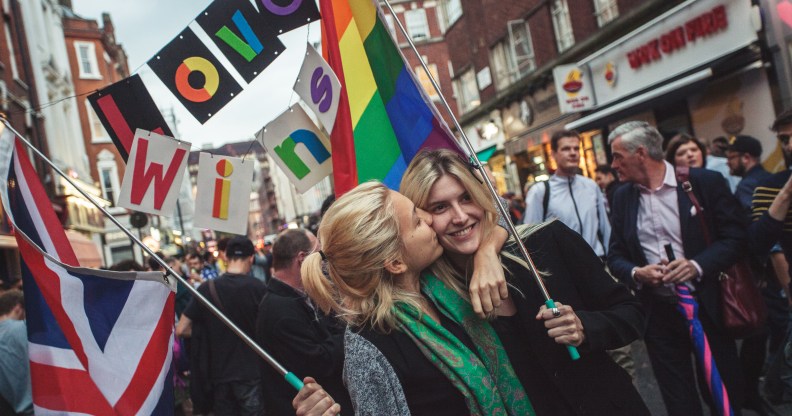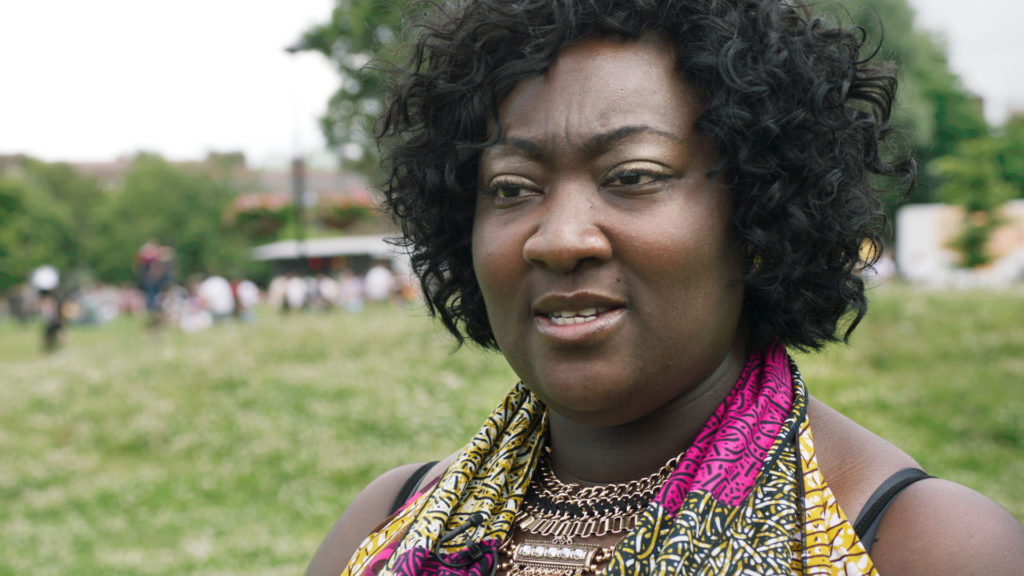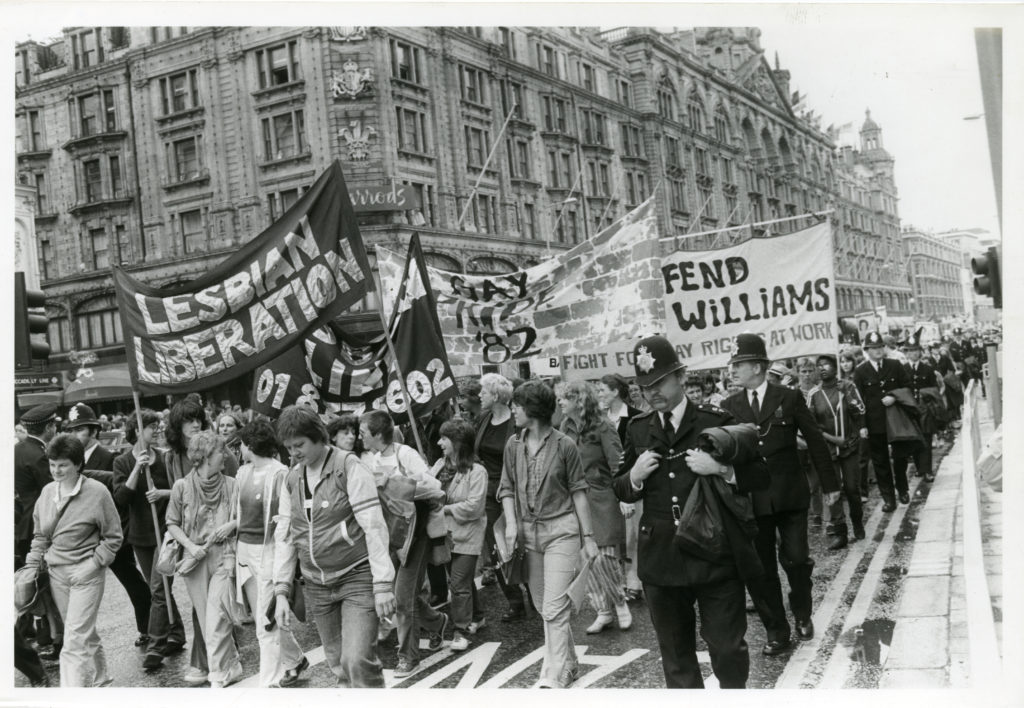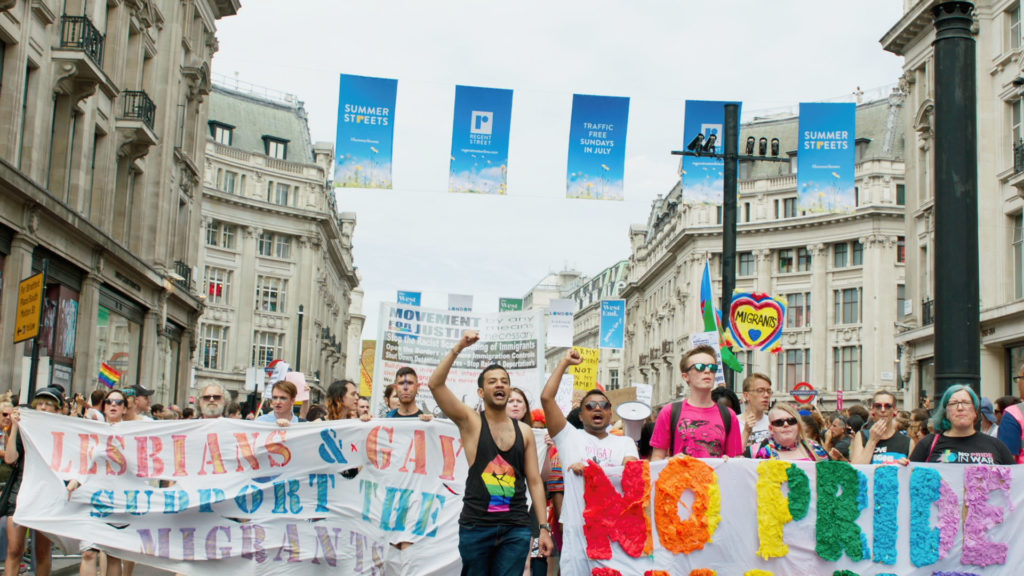Are You Proud? shows how far LGBT equality has come – and how far there is left to go

Vigil in Soho, London, after the Orlando shooting. (Christopher Bethell/Peccadillo Pictures)
“Why do you want to make a film about Pride? Everything’s fine!”
This, Ashley Joiner tells PinkNews, was usually the response he got while looking for funding for Are You Proud? — his first feature film.
“No one really wanted to talk about this,” he says. “And then the Orlando attack happened. And somebody that I’d reached out to before to try and support the film came back to me immediately and said, ‘I finally understand why you want to make this film.’”
The film tells the story of the gay rights movement in the UK, from the first Pride march in London in 1972 to today’s Pride movement, which has, in some ways, splintered, with newer events like Trans Pride Brighton and UK Black Pride making space for those in the queer community who feel they aren’t served by an increasingly corporate Pride.

Lady Phyll, co-founder of UK Black Pride, in the film. (Peccadillo Pictures)
Making a film about being proud took ‘patience’
Are You Proud? opens with a World War Two veteran talking about being closeted and in the army; being criminalised for his sexuality and eventually marrying a woman, aged 36, because questions were being asked about why he was still single.
The historical criminalisation of LGBT+ people in the UK meant making a film about our history challenging, Ashley says, because “for large periods of time people would destroy their own archives. If they were raided by the police and these things were caught then they would have been arrested.
“Under Section 28 there was no promotional material,” Ashley says, adding that making the documentary took “a lot of time and patience.”

Gay Pride March, London, 1982. (Bob Workman/Peccadillo Pictures)
Sometimes, though, this patience was hugely rewarded — like when Randolfe Wicker, who was Marsha P. Johnson’s housemate, donated his footage of the 1972 London Pride.
“He just happened to be in London at that time,” Ashley says, “And had some wonderful Super 8 footage of the first Pride, this wonderful colour film footage.”
The Gay Liberation Front manifesto
Are You Proud? also features original members of the Gay Liberation Front talking about the demands they had in the early 1970s.
What’s striking is how similar these demands are to the queer issues of 2019 — inclusive sex education and the ability to hold hands with your partner in the street, for example — and that, in some ways, they were more radical than what we now fight for.
“What I find fascinating about GLF [list of demands] is it didn’t ask for LGBT+ sex education. It asked for sex education that was not solely heterosexual,” Ashley says.
“And it’s just in the wording, which is very different. They were really talking about liberating everyone, sexually. It wasn’t a specific LGBT+ thing.”
A lot of people like to think that we’re equal now. But we’re not.
GLF didn’t originally campaign for same-sex marriage, either — even though some people think it is the “pinnacle of freedom.”
“A lot of people like to think that we’re equal now. But we’re not. If we look at marriage, there are two different marriages — there’s marriage, and there’s same-sex marriage. It’s not the same thing. If it was the same thing, it would just be marriage,” Ashley says.
Holding hands with your partner safely is a much smaller demand, Ashley says, but it’s one that he’s found resonates with people.
“It’s something that all heterosexuals can relate to. A very simple, non-aggressive, loving act that most people take for granted. It’s not an extreme act. It’s an everyday occurrence, so everyone can relate on that very basic level.”

No Pride in War at Pride in London, 2017. (Peccadillo Pictures)
Being proud and being queer
But, while the film covers the journey of Pride in the UK from the early days of GLF to groups like LGSM and UK Black Pride today, it doesn’t just tell the story of the UK’s Pride movement — it asks the question of the viewer: Do you know your history? Are you proud?
This is very much on purpose, Ashley says. As he began making the film he realised how disconnected he felt from Pride and from LGBT+ history.
“The more I read, the more I came to realise that most people of my generation didn’t know any of this,” he says.
“I don’t blame any of us for not knowing our history. We weren’t taught it in schools, obviously, because of Section 28. We’re constantly being erased, and it takes a lot of learning — and a lot of unlearning — to learn our tradition.”
“But this is our history,” he says. “And we should have access to that.”
ARE YOU PROUD? is now showing with Q&A previews and opens in cinemas on 26 July.

